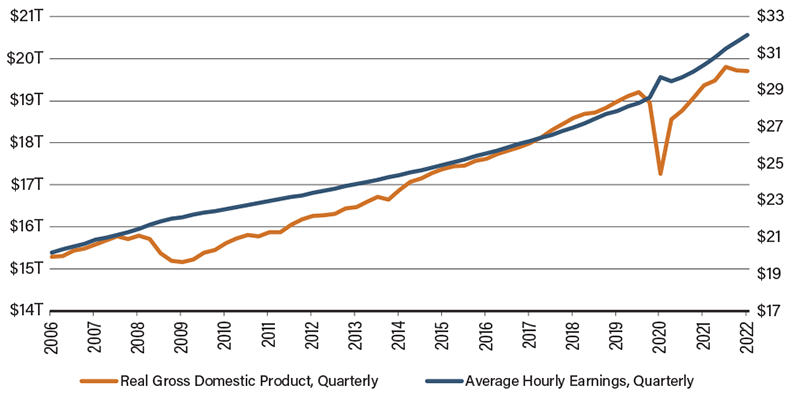Can We Have Infinite Growth in a Finite World?

You may have heard the discussion around infinite growth in a finite world, which explores the delusion of infinite economic growth on a planet of finite resources, especially in respect to the environment. Now let us talk about a finite world beyond the environmental aspect—a world where key factors of growth are limited, from the number of hours in a day to the number of cells in a human brain.
Our economic system promotes that growth is the expectation and anything less calls for panic. If gross domestic product (GDP) stalls or contracts, we look to policy change to spur growth. The inflation target rate is 2 percent—not zero—which means prices are supposed to increase. And accordingly, we expect wages to rise from one period to the next. When we read a company’s financial report, we expect to see growth or we deem the company in trouble. Most importantly, we expect these to go on infinitely. But why? And how?
Contrary to our expectations of growth, the origin of economics is the concept of decision making in the allocation of scarce—not infinite—resources. Our planet has not gotten bigger, natural resources have not increased, and there is no evidence that our brain cells have increased or improved either. Overall, our biological capacity hasn’t grown at an annual rate of 2 percent. Our life expectancy has increased, but we know with certainty that our time will pass. Even our ability and willingness to reproduce is not infinite as evident in our declining birth rate. Finiteness is a defining characteristic of our world, in which we ironically long for never-ending economic growth.
To our credit, we have so far achieved continuous long-term economic growth, from GDP and wages to price levels. Our technology has advanced and our science is better than ever. With this impressive record, it’s understandable why most of us expect this to continue. However, we haven’t given much thought to what infinite growth will look like in the future. By the power of compound growth rates, there will come a time when one needs to make $1 million a year to afford a home. What will the word “millionaire” mean then?
A Look at Long-Term Growth, 2006–2022
